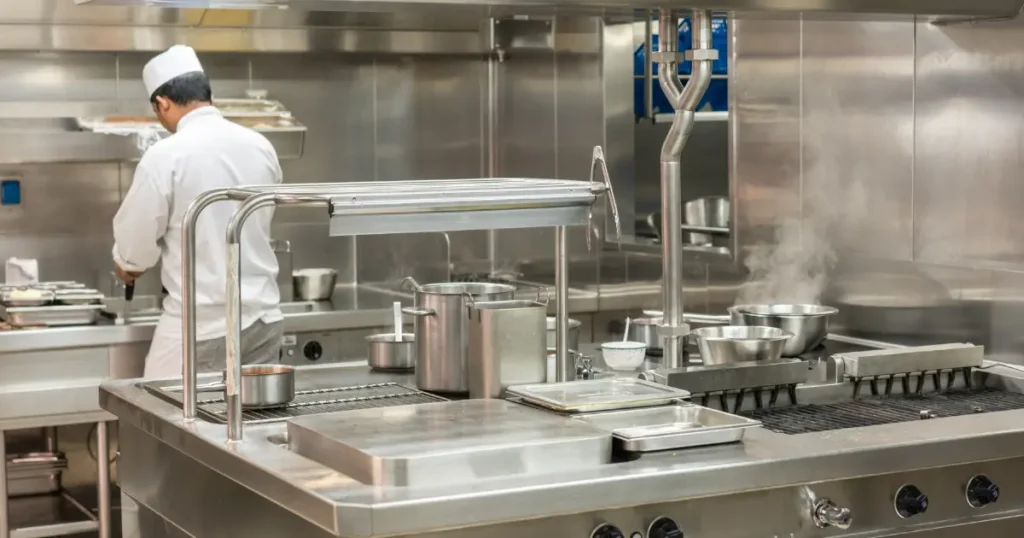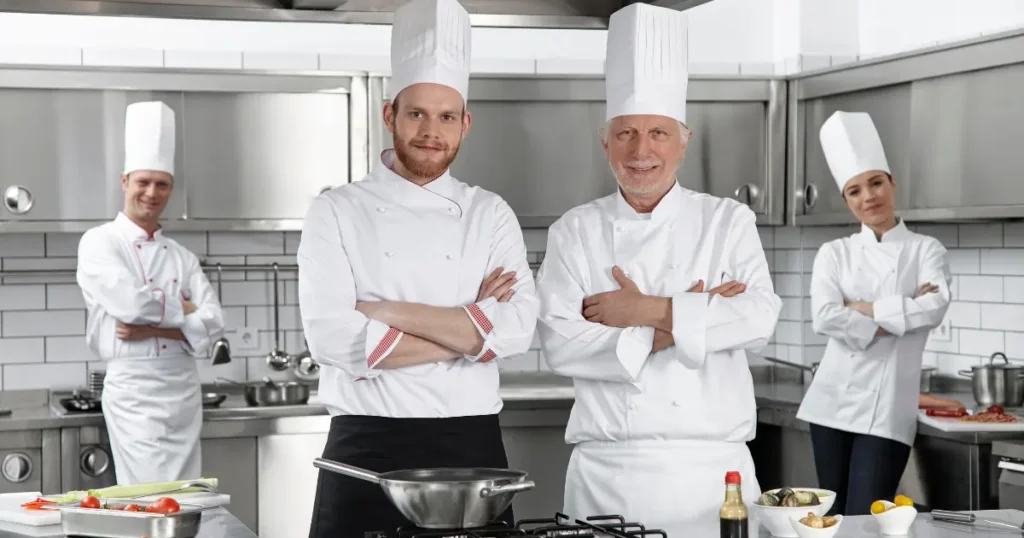In the world of hospitality, a well-designed kitchen is the heart of any successful operation. It is where food is prepared, cooked, and served, and it is essential for the smooth functioning of a restaurant or hotel. An efficient kitchen design not only ensures productivity and safety but also contributes to the overall success of the establishment. A kitchen consultant plays a critical role in the process of designing these kitchens, offering expert insights and tailored solutions that cater to the unique needs of each business. By working with hospitality consulting professionals, operators can ensure their kitchens are designed to optimize workflow, minimize waste, and enhance the overall guest experience. This article explores the insights a kitchen consultant brings to the table and how their expertise shapes the design of efficient commercial kitchens.
The Role of a Kitchen Consultant
A kitchen consultant specializes in the design, layout, and equipment selection for commercial kitchens. They work closely with restaurant owners, chefs, and other stakeholders to understand the operational needs and ensure that the kitchen design supports these requirements. This involves considering factors such as menu offerings, anticipated volume, staff size, and the type of cuisine being served. Based on these considerations, the kitchen consultant develops a design that optimizes space, improves efficiency, and enhances safety and hygiene.

One of the primary responsibilities of a kitchen consultant is to create a layout that facilitates a smooth workflow. An efficient kitchen layout minimizes the movement of staff, reduces the time spent preparing and serving food, and ensures that critical stations such as food prep, cooking, and cleaning are strategically located. This not only speeds up service but also reduces the chances of accidents or errors occurring in the kitchen (Lee, 2017).
Additionally, a kitchen consultant focuses on selecting the right equipment for the kitchen. Commercial kitchens require specialized appliances that can handle the high volume and intense demands of a hospitality operation. A consultant’s expertise ensures that the equipment chosen is energy-efficient, durable, and suited to the specific needs of the menu and volume of service. This careful selection helps reduce operational costs, increase kitchen productivity, and prolong the life of the equipment (Jones, 2015).
Importance of Workflow Optimization in Kitchen Design
One of the key areas where a kitchen consultant adds value is in optimizing the kitchen’s workflow. A well-designed kitchen should allow staff to move easily from one task to another without unnecessary backtracking or congestion. The “kitchen work triangle” is a classic design principle that helps achieve this. It focuses on the strategic placement of the sink, stove, and refrigerator to minimize movement and improve efficiency. However, modern kitchens have evolved, and consultants now consider additional factors such as the flow of ingredients from delivery to storage, preparation, cooking, and service (Cousins, Foskett, & Pennington, 2016).
For example, in a busy restaurant kitchen, food must move seamlessly from the cold storage area to the prep stations, through the cooking area, and finally to the plating and service section. A kitchen consultant ensures that each step in this process is aligned to avoid bottlenecks and unnecessary delays. They also consider the specific needs of different stations, ensuring that each has the appropriate space and equipment to function efficiently (Lee, 2017).
Workflow optimization is not only about speed; it also plays a significant role in maintaining hygiene and safety standards. By designing a kitchen where food preparation, cooking, and cleaning areas are clearly separated, a kitchen consultant helps reduce the risk of cross-contamination and accidents. They also ensure compliance with health and safety regulations, which is crucial for any hospitality operation.
Equipment Selection and Sustainability
A kitchen consultant is also instrumental in the selection of commercial kitchen equipment. The right equipment can make a significant difference in the efficiency and sustainability of a kitchen. In the context of hospitality consulting, a consultant’s goal is to select equipment that meets the operational needs of the kitchen while also minimizing energy and water usage. This not only reduces the environmental impact of the kitchen but also helps lower operational costs over time.

For example, energy-efficient ovens, refrigerators, and dishwashers can significantly reduce utility bills. Modern equipment with programmable features also allows chefs to achieve consistent cooking results while using less energy. A kitchen consultant stays updated on the latest innovations in kitchen technology and advises clients on the best options for their specific needs (Jones, 2015).
Sustainability is becoming an increasingly important consideration in kitchen design, and a kitchen consultant helps hospitality businesses incorporate sustainable practices into their operations. This includes choosing energy-efficient appliances, using eco-friendly materials in the kitchen design, and implementing waste management systems that reduce the amount of food and packaging waste produced. Consultants also recommend water-saving devices such as low-flow faucets and dishwashers, which can help reduce water consumption in the kitchen (Cousins et al., 2016).
Customization and Flexibility in Kitchen Design
No two commercial kitchens are alike, and a kitchen consultant ensures that the design is tailored to the specific needs of the business. This customization includes the layout, equipment, and workflow, all of which are designed to support the unique operations of the restaurant or hotel. For example, a fine-dining restaurant may require a different kitchen layout than a high-volume catering business, and a kitchen consultant ensures that the design reflects these differences (Friedman, 2018).

Flexibility is another important consideration in kitchen design. As menus change and businesses grow, the kitchen must be able to adapt to new demands. A kitchen consultant helps ensure that the design allows for future modifications, whether that means adding new equipment, expanding the kitchen, or reconfiguring the layout to accommodate new menu items. This flexibility is crucial for hospitality businesses that want to stay competitive in a rapidly changing market (Friedman, 2018).
Conclusion
The insights provided by a kitchen consultant are invaluable to the design of efficient commercial kitchens. From optimizing workflow and selecting the right equipment to ensuring compliance with health and safety regulations, consultants play a crucial role in the success of any hospitality operation. By working with hospitality consulting professionals, businesses can create kitchens that not only meet their current needs but also allow for future growth and sustainability. In an industry where efficiency and cost-effectiveness are key, the expertise of a kitchen consultant can make all the difference in delivering a seamless, high-quality dining experience.
References
Cousins, J., Foskett, D., & Pennington, A. (2016). Food and Beverage Management. Goodfellow Publishers.
Friedman, M. (2018). Designing Commercial Kitchens for Efficiency and Flexibility. Wiley.
Jones, P. (2015). The impact of kitchen design on operational efficiency. Journal of Hospitality and Tourism Research, 39(3), 452-466. https://doi.org/10.1177/1096348013496272
Lee, M. (2017). Optimizing kitchen workflow for safety and efficiency. International Journal of Hospitality Management, 61, 29-40. https://doi.org/10.1016/j.ijhm.2016.10.004